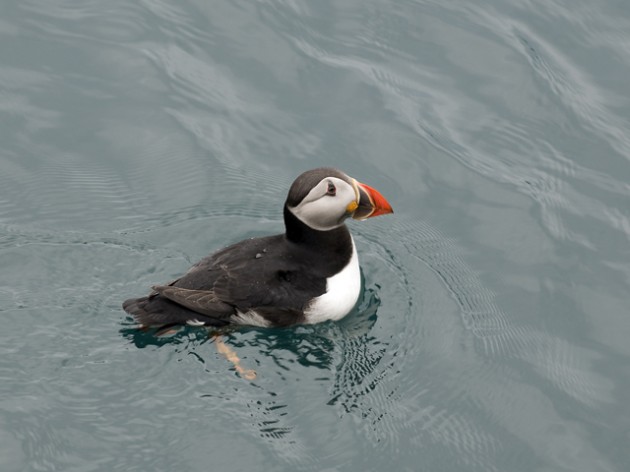...at Grassholm, Skokholm and Skomer Islands in Pembrokeshire, Bardsey Island and the Aberdaron Coast in Gwynedd
The Welsh Government has approved extensions of three Special
Protection Areas (SPAs).
The measures will help species such as the Atlantic puffin and Manx shearwater which choose to visit Welsh waters every year to lay eggs and rear their chicks.
The Marine Conservation Society (MCS) said the changes mean that these seabirds will now have greater protection from damaging activities not only at their nesting sites but also in the surrounding waters which many seabirds depend on to feed, preen and socialise – spending time in the water where they can get disturbed by fast-moving small craft or get entangled in fishing gear, such as gill nets.
The sites where the changes are taking place are Grassholm, Skokholm and Skomer Islands in Pembrokeshire, and Bardsey Island and the Aberdaron Coast in Gwynedd.
In summary, the changes are:
- A marine boundary extension of 2km around Grassholm
- A marine boundary extension of 4km around Skomer and Skokholm
- A marine boundary extension of 9km around Bardsey
MCS says it’s now vital that steps are taken to ensure all these sites are well managed.
Clare Reed, MCS Welsh Policy Officer, said: ‘This is a welcome step in the right direction for Welsh Government, but there is still more work to do to increase protection for our precious marine wildlife before the Welsh contribution to a UK ecologically coherent network of Marine Protected Areas is complete.’
Carl Sargeant, Minister for Natural Resources, said: ‘These extensions, on top of our existing suite of sites, are a step forward in completing our contribution to a coherent network of marine protected areas.
‘However I know we need to do more to fulfil the needs of seabirds and waterfowl in Welsh waters. I have asked my officials to work with Natural Resources Wales and in collaboration with marine users to consider additional areas that are important for birds.’
Picture credit: John Archer Thomson/Marine Conservation Society




